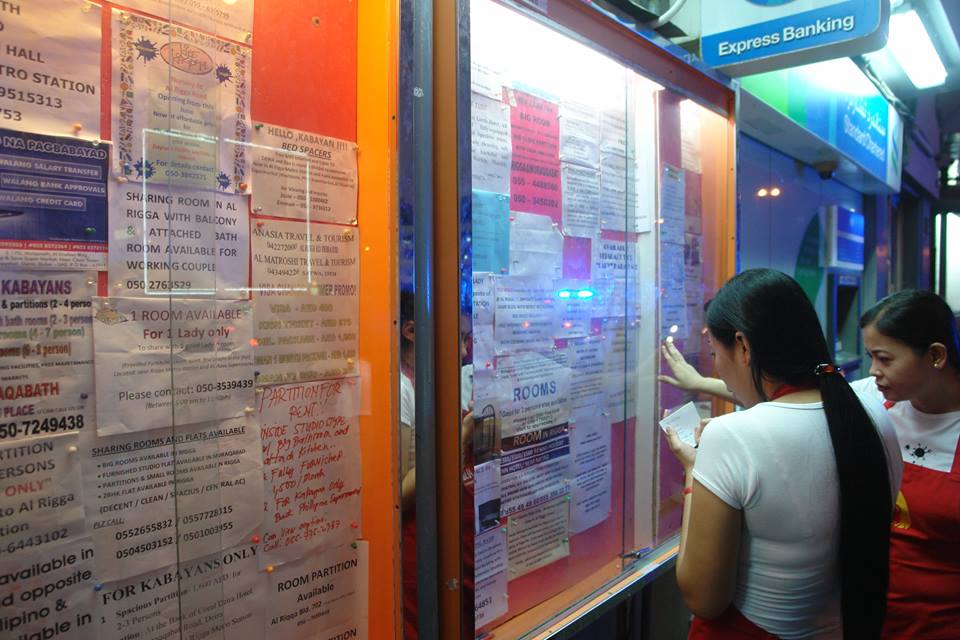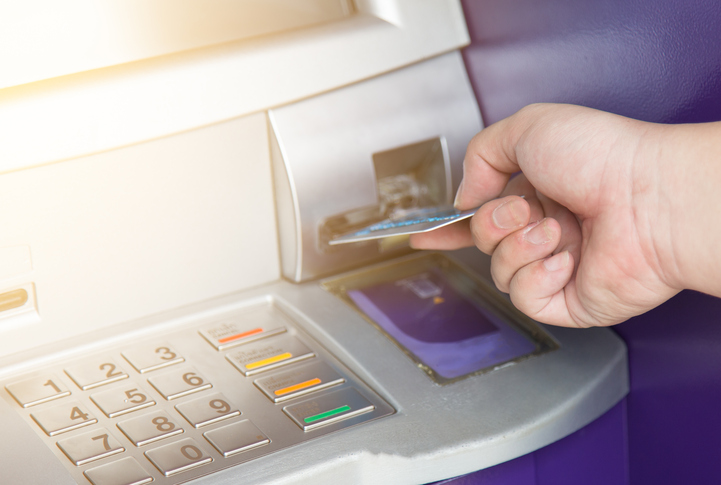There’s a popular Filipino adage that says if you’ve made it in Manila, you can make it elsewhere in the world.
But not all Pinoys in the UAE were from Manila. In fact, officials say only a fraction of the approximately one million Filipinos in the emirates actually grew up in the Philippines’ capital city; the rest were from the provinces, who may have never had a whiff of how a conman could pull a fast one and rob them blind – like say, sell them the deed for Jones Bridge where they can set up toll gates and collect from motorists crossing it in a manner how “salik” works.
‘My mother is in the hospital. We drove all the way from very far so she could have surgery and we are now running out of gas. Could you spare as some money please?
Thus, the need to give a heads-up and to which end, UAE authorities have dutifully raised 10 red flags on or warnings about scams recently reported across the country.
1. Help! Need Gas scam.

Here’s how this goes: A car pulls over near you as you walk, driver rolls down the window, narrates a really sad story: “My mother is in the hospital. We drove all the way from very far so she could have surgery and we are now running out of gas. Could you spare as some money please?” You pull out your wallet and they immediately get their eyes on it; you take a Dh10 bill, hand it over and they still got their eyes on your wallet asking for more. This modus operandi has been the talk of the community in recent months as it turns out a lot of people have been victimized.
TIP: Police authorities said get the car’s plate number and a mental picture of the driver and passengers including facial features and all; call 901. Also, you may want to disengage the conversation, back off and walk away; they can’t get out of their car and run after you anyway, police say.
2. Partition Barker scam.

Ask a Pinoy, especially a newcomer in town, about how he was approached by another while going through bedspace/partition vacancies at a bulletin board posted by a grocery store in Al Rigga or Muraqqabat, and he would most probably cut you short and tell the whole story: The barker moves in and asks in a low voice “Partition ba hanap mo, kabayan? Meron akong alam. Kailan ka ba lilipat? Sa katapusan? Halika… tignan mo. (Are you looking for a partition, fella? I know of some. When are you planning to move in? By end of the month? Come, check it out).
You check the place and find everything’s in order, even freshly painted. You give the one-month advance and the payment for the incoming month of your stay – which would usually total Dh3,000 because regular going rate for partitions in the area is at Dh1,500 excluding utilities and in some units, wifi too. You were introduced to the caretaker to whom you’ll be making future payments.
Days passed and you find out shower or AC is not working, or your place is bed bug-infested, neighbors are rowdy…and so on. You eventually realized you were railroaded into acquiring the partition and you’re back at the bulletin board.
TIP: Stick to what was announced on the bulletin board and take your time. People who post on these boards spend for their space. How could you trust someone who couldn’t even pay Dh5 for his vacancy announcement and is capitalizing on your need to get a place to stay asap?
3. Need Money for Exit scam.

There appears to be a very thin line distinguishing who actually is going on a visa run and who’s just making money out of your compassion toward a fellow Pinoy, especially if you yourself had experienced how it is to exit and spend days waiting for your visa while pinching pennies to survive.
“Kabayan, kailangan ko lang kasi ng konting pera pandagdag sa panggastos sa exit. Expiring na kasi visit visa ko (Fella, I need a little money for my expenses while on exit. My visit visa is expiring),” is the usual line.
TIP: It’s actually your judgment call, officials say. Losing Dh20, even Dh50, to someone exploiting your empathy is not going to go unnoticed. Charity activities are monitored and regulated in the UAE.
4. ATM Skimming.

In March, Abu Dhabi Police arrested four hackers who stole over Dh1 million by installing skimming devices at ATMs across the UAE. The hackers transferred the victims’ accounts like hotel master keys and shopping loyalty cards to magnetic cards, that they later converted to credit cards so they could steal the funds. Col. Dr. Rashid Mohammed Borshid, head of the Criminal Investigation Department (CID) at Abu Dhabi Police, said authorities managed to arrest one of the hackers’ accomplices in less than a day’s time. CID teams confiscated all the malware and equipment aswell, including laptops, scanners and photocopiers used by the gang, and referred the hackers to the appropriate authorities for further action.
Top tips: Be careful when putting your debit card into the slot while withdrawing money from a roadside ATM. If a skimming device has been installed, there might be a gluey stickiness around the slot, or the edges of the slot may look scratched.
5. Flat Tire scam.

Colonel Tariq Khalfan Al Ghoul, Deputy Director of the Criminal Investigation Department at Abu Dhabi Police, has reported that a trio has been arrested for robbing a bank customer using the “flat tire” modus operandi. The victim had just withdrawn money from an ATM, and had gotten back to his car when the three suspects came to him, saying he has a flat tire. “The victim got out of the car to inspect the alleged flat tire. While the motorist was out, one of the suspects opened the door on the other side and took away an envelope containing the money,” said Al Ghoul.
Top tips: “Don’t display targeted items such as cash, jewellery, wallets, etc. Keep in mind that a robber can be anywhere and look like anyone. The threat is not always obvious, so it’s wise to be cautious in all situations and not trust unknown individuals,” the Criminal Investigation Department at Abu Dhabi Police advised.
6. Fake Car Deals.

Pinoys being the car lovers that they are should know about this. Several cases of fake car deals have been reported in the UAE. After finding an unsuspecting car seller, a con artist offers to pay the price asked by the seller. The sale transaction is done on a Thursday afternoon through a bank cheque because the victim could not deposit it on a weekend, giving the conman time to resell the car, while the original seller comes to know of the bad cheque consequently.
In June this year, 54 people accused in fake car deals were put on trial in Abu Dhabi. When the defendants were caught, police seized Dh160 million from them, plus 395 cars.
Top tips: Almost all major car dealers in the UAE have a good website, so check out their contact numbers and phone them to verify if the person you’re dealing with is a genuine agent.
7. Phone Bill Discount scam.

Locals and expats in the UAE should be on the alert about a money-making scam that targets telco subscribers. In an advisory sent to customers via SMS early September, du warned clients about bogus employees who give discounts for their telecom bills. “Some impostors, claiming to be working for du, will offer you discounts on your du bill payments. Please do not accept any such officers. These impostors are using stolen credit cards for payments,” the du advisory read.
Top tips: As they say, if it’s too good to be true, it most probably is so leave it! When you come across these rip-offs or offers, it’s advisable to report the scammers’ claims to the customer care staff of du and Etisalat.
8. Magic Pen scam.

In August, RAK Bank (National Bank of Ras Al Khaimah) warned of the magic pen fraud. Mostly, the fraudsters approach customers as sales representatives of banks selling credit cards and loan products. The imposter fills up the details using their magic pen. But the ink in the magic pen is not indelible. Once the cheque has been signed and given to the con artist, the beneficiary name and amount in the cheque are altered.
Top tips: According to RAK Bank, people should take precautions such as asking the representative to identify himself and check his photo ID card issued by the bank; never issue a signed blank cheque; and fill in all details in a cheque, including the name of the beneficiary, using their own pen, never use pens provided by another person.
9. Real Property scam.

Filipinos looking for a place that the whole family can move into should take note of this.
Using fake IDs, tenancy contracts and false names to trick their victims, the fraudsters’ modus operandi involves showing homes and apartments to several prospective tenants, without the knowledge of the property owners, obtaining rent and commission fees from the former and then vanishing.
In September, a real estate dealer stood trial after being accused of conning three families of Dh106,000 in a rent scam. The Abu Dhabi Criminal Court of First Instance heard that the Arab man took the cash for rent from the victims after showing them apartments in a villa located in the Al Shamkha area of Abu Dhabi. Apparently, the Arab was able to convince the prospective tenants that the apartments all belonged to him.
One of the victims said he saw an ad on a website about the flat being leased out, and phoned the number. After seeing the villa with his wife, they handed the “owner” Dh67,000 upon signing of a lease agreement covering a year’s time. “When I gave him a ring back the following day to get the apartment keys, the man told me that he was in Al Ain city and that he would give me the keys the following Sunday.”
When the victim finally realized he was deceived, he reported the matter to police. Prosecutors charged the Arab with forging official documents and fraudulently taking the tenants’ money.
Top tips: To ensure you won’t fall prey to any real estate scams, Dr Hassan Elhais, Legal Consultant at Al Rowaad Advocates & Legal Consultants, gave some tips for property buyers and tenants. “If the person is claiming to be an estate agent, then proof to the effect that he is a registered property agent, the title deed of the property and passport copy of the owner, recent and updated Tawtheeq documents and all persons’ phone numbers must be presented to you before handing out them any advance payment.”



